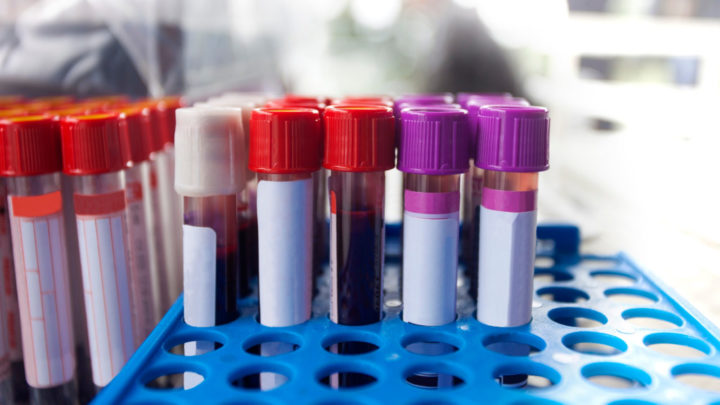
Doctors often advise blood tests to discover if a patient has a deficiency or a concerning heath issue but according to a recent study it could be taken one step further with people potentially being able to find out whether they are going to live through the next 10 years or not.
Ground-breaking research carried out by the Max Planck Institute for Biology of Ageing resulted in the development of a blood test which could predict a person’s chance of dying in the coming decade after uncovering biomarkers in the blood that apparently affect the risk of death. Academics worked together to analyse the blood of over 44,000 people, who ranged in age from 18 to 109, and examined the biomarkers which were then used to develop a test.
The researchers came to the conclusion that 14 biomarkers were associated with death in people of all ages, including the ratio of polyunsaturated fats to total fatty acids. After further examination the experts also realised the biomarkers could give an indication of someone’s likelihood of surviving the next 10 years with a test successfully predicting a participant’s risk of death with 83 per cent accuracy over the two to 16-year follow-up period.
Scores were then provided to participants predicting whether they would die in the coming decade or go on to live a long life. These ranged from minus two to three, with the participants’ risk of death increasing, the higher the score they received.
“By performing high-throughput metabolic biomarker profiling in 44,168 individuals from 12 cohorts, we identified a set of 14 biomarkers independently associating with all-cause mortality,” the study published in the journal Nature Communications explained. “The associations of these biomarkers were consistent in men and women and across age strata.
“In combination, these biomarkers clearly improve risk prediction of 5- and 10-year mortality as compared to conventional risk factors across all ages. This indicates that this affordable, well-standardised and high-thorughput NMR measurement may be used to generate a standard for risk assessment of mortality in the clinic.”
While the thought of knowing when one’s time on earth is running out may bring about feelings of nervousness and anxiety, according to the researchers it could be a benefit to society, especially the elderly. They claimed the blood test could prove more effective in detailing a person’s health status than measures currently used by doctors around the world and would help to improve a person’s condition.
“In comparison to conventional risk factors, such as systolic blood pressure and total cholesterol, these biomarkers seem much more suitable for guided screening of older individuals at risk, as surrogate endpoint in clinical trials among older individuals and for targeted prevention of mortality,” the study read. “Future studies should be performed to determine which health conditions are further reflected by the identified metabolic biomarkers and by what mechanisms.”
However, days of living in blissful ignorance will continue for a little while longer with researchers explaining the blood test wouldn’t be available just yet with further studies required before it can be given the tick of approval for doctors around the world. This isn’t the first time scientists have claimed a blood test can provide better results for health with researchers recently revealing their development of a blood test that can detect early brain changes associated with Alzheimer’s.
The blood test is 94 per cent accurate and is one step closer to clinical use after researchers from Washington University School of Medicine found a way to measure levels of the Alzheimer’s protein amyloid beta in the blood – and whether or not the protein has accumulated in the brain. The new findings, published in the Neurology Journal, reveal the blood test could be available within a few years and offer another way of detecting the beginnings of amyloid deposition in the brain – which is currently detected through a PET brain scan. While there’s currently no cure for Alzheimer’s, it could allow those showing early signs of the disease to participate in clinical trials or start other treatments that can lessen symptoms.
“Right now we screen people for clinical trials with brain scans, which is time-consuming and expensive, and enrolling participants takes years,” senior author Randall J. Bateman said in a statement. “But with a blood test, we could potentially screen thousands of people a month. That means we can more efficiently enrol participants in clinical trials, which will help us find treatments faster, and could have an enormous impact on the cost of the disease as well as the human suffering that goes with it.”
The new blood test uses a technique called mass spectrometry to measure the levels of two forms of amyloid beta in the blood. The ratio of the two forms goes down as the amount of amyloid beta deposits in the brain increase. The current study analysed 158 over-50s who each underwent a PET brain scan and provided at least one blood sample so researchers could classify each blood sample and scan as either amyloid positive or negative.
While 88 per cent of the blood tests matched with the pet scan, researchers also incorporated major risk factors for Alzheimer’s including age, genetics and gender and found that when people were over 65 or had a genetic variant called APOE4, the accuracy of the blood test increased to 94 per cent.
IMPORTANT LEGAL INFO This article is of a general nature and FYI only, because it doesn’t take into account your personal health requirements or existing medical conditions. That means it’s not personalised health advice and shouldn’t be relied upon as if it is. Before making a health-related decision, you should work out if the info is appropriate for your situation and get professional medical advice.